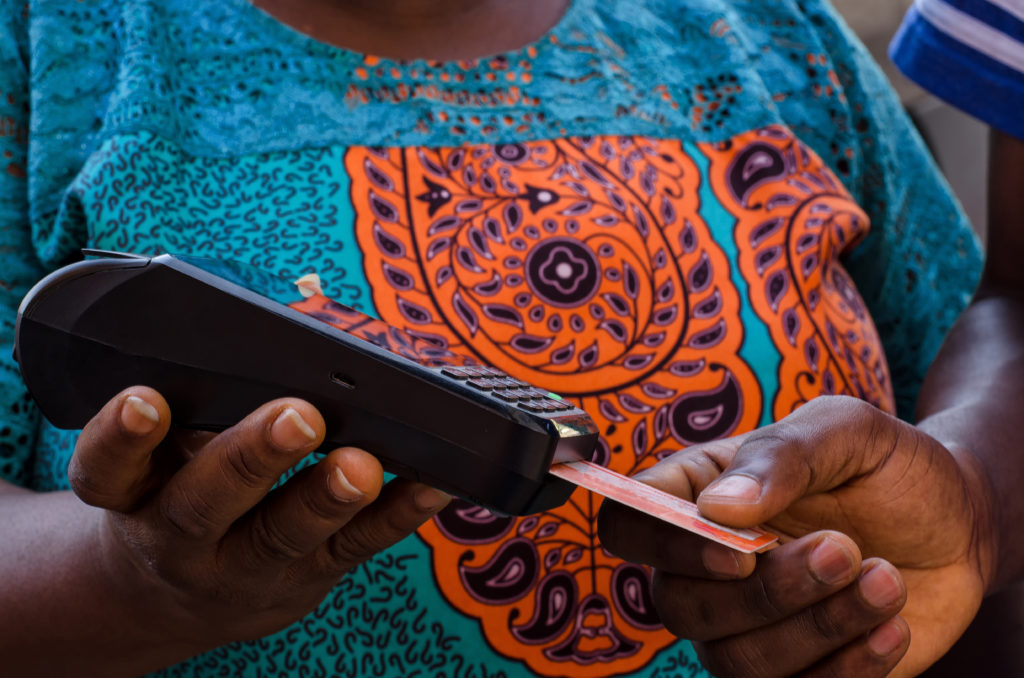Toward the end of 2022, Godwin Emeifiele, the then Central Bank governor, announced the redesign of N200, N500, and N1000 currency notes and said beginning from January 2023, the old notes would cease to be legal tender.By January 2023, most old notes had been withdrawn from circulations. But Nigerians had it tough as the new notes were barely in circulation. The notes were unavailable at automated teller machines or ATMs, and commercial banks had no money to dispense but hoarded what they had at some point despite warnings and threats by the CBN.Amidst the challenges, banks became like a mecca, with crowds thronging to their various bank branches to access their cash. While these problems persisted, mobile banking apps provided succour to many. Mobile bankingMobile banking refers to using mobile devices like smartphones or tablets to access and manage banking accounts, perform various financial transactions, pay bills, perform other tasks, and serve as mobile banking platforms. These applications are also known as mobile wallets.In Nigeria, operators of mobile wallets include Paga Mobile, First Bank’s Firstmonie, Momo, Opay, Palmpay, Polaris Surepadi, Google Wallet, Pocket Monie, EazyMoney, GT Mobile Money, Moniepoint, and several others.In recent years, the size of mobile payment has increased significantly due to a range of factors, including convenience and operational confidence. Data from the Nigeria Interbank Settlement System (NIBSS) shows that the volume of mobile transactions increased from 51 million in 2017 to 410 million in 2019, representing a growth of approximately 703.9%. Similarly, the value of mobile transactions in the first five months of 2020 reached 853.7 billion, surpassing the figures of 2019 by 3.1%.In 2022, the number of mobile money accounts in Nigeria exceeded 60 million. Moreover, data from the nationally representative 2022 GSMA Consumer Survey indicates that access and usage of mobile money in Nigeria have grown since the recent launches of public service banks or PSBs. One reason for this growth is that 81% of mobile money users believe it helps them save time.Additionally, data from the Nigeria Inter-Bank Settlement System (NIBSS) reveals that the volume of mobile money transactions in February 2023 increased by 70% to 183.69 million, compared to 108.13 million recorded in January 2023.The place of merchantsAlongside the growing adoption of mobile banking, the presence of merchants across Nigeria further enhances the convenience of “stress-free” transactions. These merchants use point of sale or POS systems to facilitate alternate transactions. Located in various areas, these merchants not only provide users with easily accessible banking services but also provide jobs for Nigerians. Samaila Usman, a graduate of Ahmadu Bello University, Zaria, Kaduna State, said he became a POS agent after graduating from the university in 2010.“I acquired a POS machine through an agent I know. I serve more than 30 customers daily, and I could have served even more if other merchants weren’t nearby,” he said.Samaila, based in Abuja, told Prime Progress that he uses different banking applications and has taught many others how to use them for transactions.Feedback from customersSarah Nwosu,35, said she prefers using mobile banking even as a banker. “I appreciate the quick transactions I can perform, and I believe Nigerians would love this convenient system,” she said.Francis Abraham, a youth corps member, said he survived the cash crunch using mobile banking. “I faced immense difficulties in withdrawing cash daily, but my mobile app came to the rescue. Prior to that period, my siblings and friends introduced me to mobile banking, but I was sceptical, thinking it was a scam.”The introduction of mobile banking in Nigeria has undoubtedly filled a gap in the country’s banking system by providing a means to carry out fast and almost seamless transactions, even in remote areas. It has also contributed to increased financial inclusion for many previously unbanked Nigerians, as one doesn’t necessarily need to enter the bank to open an account. Despite its advantages, there are challenges with the system. Over 50% of Nigerians lack digital skills and will struggle to use mobile banking services. Additionally, limited access to reliable internet or mobile phone service may hinder the usage of mobile banking services.Finally, some individuals may prefer the face-to-face interaction associated with traditional banking and may not feel comfortable conducting financial transactions through their mobile devices.While these problems exist, the sector continues to expand, with more innovations launched almost daily and more companies applying for mobile banking licences.
Toward the end of 2022, Nigeria's Central Bank governor, Godwin Emeifiele, announced the redesign of N200, N500, and N1000 currency notes, phasing out the old notes by January 2023. However, the new notes were scarcely available, leading to severe cash shortages. This situation forced many Nigerians to flock to banks, which struggled to dispense cash. Amidst these challenges, mobile banking emerged as a crucial solution, enabling many to manage their finances through smartphones and mobile applications.
Mobile banking in Nigeria saw significant growth due to its convenience and increased consumer confidence. The volume of mobile transactions surged from 51 million in 2017 to 410 million in 2019, a growth of approximately 703.9%. In the first five months of 2020 alone, the value of these transactions exceeded ₦853.7 billion. By 2022, mobile money accounts in the country surpassed 60 million, and February 2023 saw a 70% increase in transaction volumes compared to January.
The proliferation of merchants using point of sale (POS) systems further facilitated convenient transactions and created job opportunities. Graduates like Samaila Usman benefitted by becoming POS agents, serving multiple customers daily and aiding in the spread of mobile banking knowledge.
Customers have largely appreciated mobile banking for its swift and convenient transactions. Despite this, there are challenges such as a lack of digital skills among over 50% of Nigerians, limited internet access, and a preference for traditional banking. Nonetheless, the sector continues to grow with ongoing innovations and new applicants for mobile banking licenses, steadily improving financial inclusion across Nigeria.






